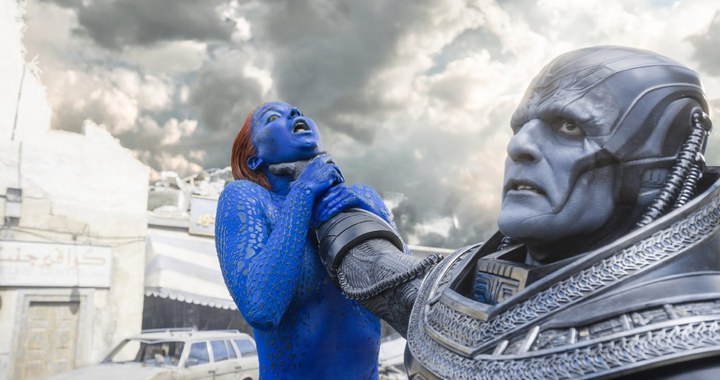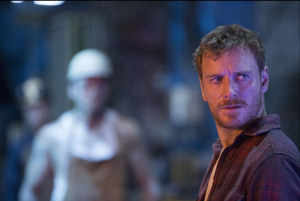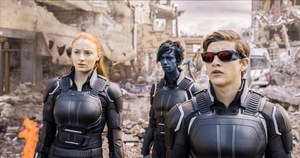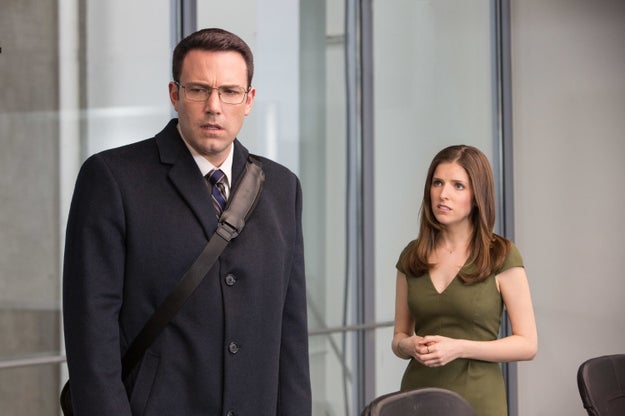![]()
Adam B. Vary / BuzzFeed News; Saldana: Paramount Pictures; Smith: Warner Bros. Pictures; Isaac: 20th Century Fox; Depp: Disney; Efron: Universal Pictures; Independence Day: 20th Century Fox
In the Age of No New Ideas, the term “sequel” has expanded in spirit, becoming a catchall for anything that isn’t original — which is to say, almost everything given a big summer release. It’s the same reason that “sequel,” for some, is also a handy shorthand term when talking about Hollywood’s perceived creative bankruptcy, in which intellectual property is stretched out and then recycled over and over until, like well-chewed gum, all its flavor is gone. Too many sequels, the argument goes, not enough fresh conceits.
But guess what: The greatest goddamn movie of last year, George Miller’s scorcher Mad Max: Fury Road, was a sequel, and one that jolted to life a series that had lain dormant for three long decades. Magic Mike XXL was warmer, shaggier, and better than the first film. Mission: Impossible — Rogue Nation was evidence that, against all odds, Tom Cruise’s 19-year-old action franchise was actually improving as it went along. They weren’t all winners, but last year’s array of sequels offered hope that, if studios were really only going to greenlight (at minimum) nominally familiar properties from now on, filmmakers could still find a way to make exciting, vital mainstream movies.
And then this summer came along, and it all went to hell.
Weekend after weekend, a sad parade of films adorned with numbers and colons tried to win over audiences. And weekend after weekend, people instead went, Nah, gonna look for Pokémon, or No thanks, gotta catch up on Stranger Things, or even You know, I think I’d rather watch the world burn down in real time on cable news. In a strange box office paradox, overall grosses are slightly up from last summer; and yet, other than genuine, mega-grossing blockbusters Finding Dory and Captain America: Civil War, every single franchise movie launched this summer was either a box office disappointment (X-Men: Apocalypse, Star Trek Beyond) or an outright flop (Independence Day: Resurgence, Now You See Me 2). Heck, even the less-than-immaculately conceived remake of the 1959 biblical epic Ben-Hur left the risible impression that, if the box office was righteous (it was not), our hero and his wayward brother could have conceivably returned for another spin in the arena.
![]()
Adam B. Vary / BuzzFeed News
These are movies that are supposed to have their runaway success built in. It’s the whole reason why studios have spent obscene amounts of money developing well-known properties into reliable movie franchises — and at the expense of investing in original filmmaking.
This summer, that practice has reached a particularly cheerless zenith. Of the top 30 films at the domestic box office this season, the majority have been sequels and their ilk: prequels, reboots, remakes, and the newest addition to the studio portfolio, extensions of an ongoing cinematic universe. Sequels have featured prominently during the summer for decades, but this level of marketplace saturation is something quite new, leaving the season with the feeling that all we get to consume now are lukewarm leftovers scrounged up from the back corner of the freezer.
The sequel isn’t going away. Which is fine. The problem’s not that there are too many sequels, just so many bad ones. So the real question is: Can sequels — and, by extension, blockbusters — be saved? From the ash heap of this dismal summer, here are a few lessons that can be scavenged for how Hollywood can make summer movies satisfying again.
![]()
Johnny Depp and Mia Wasikowska in Disney's Alice Through the Looking Glass.
Peter Mountain / Disney
1. Make Sequels That Have a Reason to Exist
The key difference between this summer’s big releases and last summer’s is not that so many recent sequels were unasked for by audiences, but that the people involved in making them seemed unsure as to why they should exist. Alice Through the Looking Glass, the extravagantly lackluster sequel to Tim Burton’s 2010 Alice in Wonderland, was a movie based on the plot point that...the Mad Hatter had become depressed. Also, something or other about how defying the entrenched gender norms of your era is just a question of trying a little harder.
Alice Through the Looking Glass wasn’t made because its predecessor created a world so overflowing with great ideas that it was begging for a revisit; it was commissioned because of the first film’s box office haul. That general feeling of directionlessness was in every element of the film, including how Mia Wasikowska and Johnny Depp reprised their roles with all the engagement of two people who only looked at the script for the first time on the way to set. It wasn’t even bad so much as it was $170 million worth of movie that was barely there, a feature with so little momentum it seemed to struggle to fill enough time to roll credits. When a film can barely bring itself to show up, how can audiences be expected to?
![]()
Matt Damon in Jason Bourne.
Jasin Boland / Universal Pictures
And that why are we here again? sensibility was all over this summer’s sequels. Neighbors was a pleasantly funny comedy, but its concept wasn’t nearly good enough to support a second attempt so soon after the first. Jason Bourne yanked its title character out of his off-the-grid retirement for crummy additional backstory — it should have ended with a brutal shaky-cam facepalm instead of a showdown in Vegas. Now You See Me 2? Independence Day: Resurgence? Teenage Mutant Ninja Turtles: Out of the Shadows? These would-be franchises overstayed their welcome in just two installments because there was so little in the way of anticipation or content to base these sequels on (aside from the idea that people paid to see the first film and so must want more, right?). The tail-end of August promises Mechanic: Resurrection, a follow-up to a 2011 Jason Statham action movie that most people probably don’t even remember; if the pattern holds, those same people sure as hell aren’t turning up to see its sequel.
These were products reverse engineered on the basis of box office numbers and stars, with the hope that the rest of the moviemaking equation would fill out somewhere along the way. Not only did these films fail to bring something new to the table, they seemed to have lost track of what was appealing about the originals in the first place.
![]()
Tye Sheridan, Nicholas Hoult, Evan Peters, Jennifer Lawrence, and Sophie Turner in X-Men: Apocalypse.
Alan Markfield / 20th Century Fox
2. Make Sequels That Can Stand on Their Own as Movies
Our current bout of sequelitis germinated ’round the time Marvel Studios began making a fuck ton of money stringing together a series of individual superhero franchises into a cohesive cinematic universe. You can imagine studio executives throughout Los Angeles collectively blinking at their May 2012 box office reports and thinking, Wait, you…you can do that?
It’s how we ended up with a movie like X-Men: Apocalypse, which presumes audiences have entered the theater deeply familiar with the previous eleventy X-Men movies stretching across two decades and at least two space-time continuums. The movie barely has a starting point, and instead does a check-in with more than a dozen disparate characters, like the opening episodes of a Game of Thrones season. And (spoiler alert, kinda) the film’s conclusion — bizarrely tidy after a global cataclysm — leaves just enough dangling plot strands for our next symposium with the uncanny X-Men. When factoring in 2017’s third Wolverine sequel and the long-delayed Gambit spin-off, it’s no wonder that one of the delights of February’s Deadpool was how it tugged so gleefully at the ragged threads that barely tie this franchise together.
![]()
Chris Pine in Star Trek Beyond.
Kimberley French / Paramount Pictures
Star Trek Beyond at least worked as a coherent film, but Captain Kirk’s cheeky joke in the opening monologue — that life on the Enterprise had started to feel “episodic” — proved all too prophetic. Screenwriters Simon Pegg and Doug Jung crafted a story that spent so much time evoking the scrappy rhythms of the original TV series that, despite director Justin Lin’s visual pyrotechnics, the film lost its way as cinema. The dialed-down stakes and shallow character arcs only reinforced how Star Trek works best when it’s on TV.
Look, Marvel Studios has certainly made its fair share of turkeys, too — even Captain America: Civil War, a billion-dollar sensation, was the company’s most TV-like movie yet. Marvel’s underlying success, however, is rooted in how its best films are able to carve out a unique space within its larger universe — they work as movies first, and as chapters in a larger story second. It’s a crucial step that other Hollywood studios have neglected at their peril.
![]()
Margot Robbie, Adewale Akinnuoye-Agbaje, Karen Fukuhara, Joel Kinnaman, Will Smith, and Jai Courtney in Suicide Squad.
Warner Bros. Pictures
3. Hire Directors Who Know What They’re Doing, And Let Them Do It
A few years ago, studios started snapping up smaller-time filmmakers in earnest to direct tentpole pictures. Marc Webb went from winsome non-rom-com (500) Days of Summer to The Amazing Spider-Man; Rupert Wyatt made the leap from prison break drama The Escapist to Rise of the Planet of the Apes; Gareth Edwards went from the $500,000 creature feature Monsters to the $160 million one Godzilla; and Colin Trevorrow leveled up from the indie Safety Not Guaranteed to the gargantuan Jurassic World. In theory, it was exciting: Promising newcomers with fresh eyes and different sensibilities were being brought in from outside the system and allowed to play in the industry’s biggest sandboxes (even if, in practice, the directors being given these daring think-outside-the-box chances were almost uniformly thirty- and fortysomething white men).
![]()
Director David Ayer and Will Smith on the set of Suicide Squad.
Clay Enos / Warner Bros. Pictures
But handing a franchise to a less-established filmmaker is also turning out to be a method by which studios maintain control of a high-priced, high-stakes project. These are hires that executives feel comfortable with bowling over and outvoting without hesitation. Consider Suicide Squad, which may not have been quite as ridiculously mauled by studio intervention as last year’s Fantastic Four, but was still a disastrous collision of tones, cuts, and directions which broadcasted its reportedly rushed and troubled production loud and clear. It had no author, or way too many, but what ended up on screen wasn’t David Ayer’s vision, whatever that was.
Why the hell was Ayer — maker of gritty dramas about men being men together — picked for a project that prominently featured women and, above all, was strenuously promised to be fun? Suicide Squad’s problems were woven in from the beginning, and then compounded by studio second-guessing. Pricey pictures are never going to be totally hands-off affairs, but if studios can’t trust the directors they hire to steer films they want, what’s left is a future of garbled fare assembled by a committee desperately guessing at what people want. You can let your test screening audience write your movie, but there are no guarantees they’ll turn up to see it.
![]()
Travis Fimmel in Warcraft.
Legendary Pictures
4. Stop Treating Movies Like Expensive TV Pilots
This summer wasn’t just a cavalcade of ill-fated sequels, of course. There were also movies that were born from the simple boardroom pitch, “Hey, what if we started a brand-new movie franchise out of [insert decades-old pop culture franchise here]?”
Warcraft, based on the massively popular video game series launched in the 1990s, was clearly designed to spawn a sweeping new fantasy saga, one in which Paula Patton sports tusks. The producers behind the all-female Ghostbusters reboot, meanwhile, made no secret of their desire for the film to launch an “endless” string of ghostbusting movies. And had The Legend of Tarzan (conservatively, the 50th film about the vine-swinging ape-man) been a runaway hit, there’s no doubt Warner Bros. would have conscripted Alexander Skarsgård and Alexander Skarsgård’s abs for many more rumbles in the jungle.
![]()
Leslie Jones, Melissa McCarthy, Kristen Wiig, and Kate McKinnon in Ghostbusters.
Hopper Stone / Columbia Pictures
Each of these films has its charms, but even before they arrived in theaters, their respective studios’ eagerness for them to be simply the first in a multipart franchise sapped them of any real urgency. They dared audiences to make the films popular only so we could get even more “it’s the same, but different, just not too different!” retreads. (The efforts of MRA trolls to undermine Ghostbusters ultimately didn’t harm the film’s box office longevity nearly as much as its near-constant references to the 1984 original did.)
And repackaging old franchises is only getting more popular with studios. In 2017 alone, we’re supposed to get brand-new movie versions of King Kong, King Arthur, Power Rangers, Ghost in the Shell, Smurfs, Barbie, CHiPs, Baywatch, Spider-Man, Jumanji, and The Six Million Dollar Man (inflation-adjusted to The Six Billion Dollar Man). Each of these movies could potentially be good, of course, but they were greenlit because they might (re)launch a movie franchise.
As Hollywood has painfully learned this summer, however: Just because the same careworn tentpoles are erected year after year doesn’t mean people will keep coming to the circus.





































































